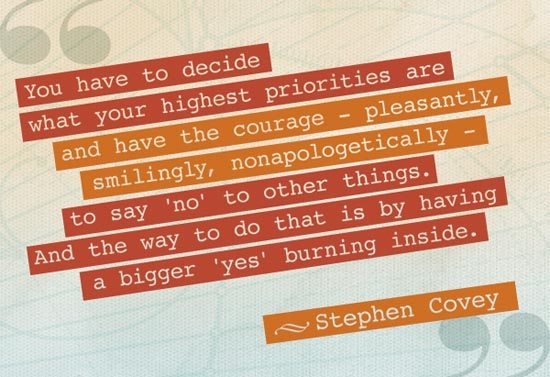Success Advice
6 Classic Lessons We Can All Learn From Stephen Covey
Dr. Stephen Covey, wrote the best-selling book in 1989 titled “The 7 Habits of Highly Effective People”. His death saddened many, but most people have been grateful for his life and work. His book has several insights and splendid ideas that have inspired many.
The 7 Habits has a way of seeping you in, with several life lessons touching on almost every aspect of life from marriage to parenting to leadership.
More than 20 million copies of The 7 Habits of Highly Effective People have been sold and the book has been named as one of the most influential management books by most organizations including Forbes and Time Magazines. In 1996, Stephen Covey was listed among the 25 Most Influential Americans by the Times because of his hard work and efforts on the book.
Stephen Covey believed that success occurs when one aligns their values with timeless and universal principles existing in the world. He teaches that values are what govern the behavior of people, but principles are what ultimately determine the consequences. Besides his best-selling book of 1989, he also wrote “First Things First”, “The 8th Habit”, “The Seven Habits of Highly Effective Families”, and “Principle-Centered Leadership”. From his achievements and great work, here are 6 classic lessons we can learn from Stephen Covey.
1. Putting First Things First
One of the most important lessons that we can learn from Covey is putting first things first. Covey has a chapter that introduces today’s conventional wisdom framework of being able to distinguish the urgent from the important tasks. He says:
“Easy leadership is putting first things first”.
In order to be a great leader, one has to prioritize the most important things before others, and has to distinguish the most critical from the insignificant and place the critical first.
First in order, then first in priority and first in rank. If the critical is placed first, and given the critical focus and attention, there is certainly effectiveness in leadership with soar.
2. Begin With The End In Mind
This was his second habit, and he shows us that it is easier to do something in the short run than in the long run. It is important in everything that we do, we ask ourselves what we are trying to accomplish. It is more adept at answering this question for the short and medium term goals. You will realize, you can getter better at beginning with the end in mind for longer term goals but you my still have to put in more effort to get there. By nature, long term goals are less clear and the path to achieving them is also less certain. It is therefore important that we learn to articulate these goals and then reverse to try engineering them from the back in ways that are actionable in the short run.
3. Think Of Win-Win Situations
Covey teaches us to always think of Win-Win Situations. We can learn to look for solutions that can benefit everyone in the society. According to him:
“This is a frame of the heart and mind that always seeks mutual benefit in all interactions of humans”.
According to Covey, Win-Win means agreements are mutually satisfying and beneficial. He says that the way people think in terms of dichotomies; win or lose, hardball or softball, strong or weak is fundamentally flawed.
4. Stick To Your Main End Goal
Do not be swayed from your main life goals. Covey states that,
“The main goal is to keep the main goal the main goal”.
It is important that you never lose sight of the big picture and always be determined by keeping the main thing the main thing.
Failure is hugely contributed to by losing focus. Even though you have a good start, it is essential that you avoid all sorts of distractions and attractions you may experience in life that may sidetrack you. Be focused on the main thing, and keep it the main thing!
5. Your Character Is Critical
Stephen Covey teaches us that our character is a composite of our habits, and therefore, we should know that character is very critical. Watch your habits because they determine your character and it is your character that defines your life. It is difficult to rise higher than your character’s fortitude. Your character forms the foundation for your life and for you to change your life, you have to change your character.
6. Be Good At Listening
Lastly, we first need to understand, to be understood. Listen to what other people have to say and try to understand them. Equally, they will grant you the same courtesy and respect your opinions just as you have shown them. Stephen writes,
“We have a tendency to rush things, and fix them up with good advice”.
However, we often fail to take time to diagnose and really understand the problem. This message is very crucial to effective interpersonal communication.
R.I.P Stephen Covey
Your Legacy Lives On!

Change Your Mindset
The Hidden Reason You Can’t Stay Consistent
If motivation keeps failing you, the real issue isn’t discipline. It’s the identity shaping your habits and long-term success.

Success often looks like a time-management problem. You buy a planner, set reminders, and hope that next week will be different. For a few days, it works. Then stress hits, motivation drops, and old patterns return. (more…)
Business
9 Modern Workplace Solutions That Instantly Boost Productivity
Modern workplace solutions, smart tech, and flexible systems help teams work faster, stay focused, and drive higher productivity without burnout.

Contemporary workplaces continue to adapt to new demands and expectations. Employees seek efficiency, comfort, and flexibility in their work environments. Modern workplace solutions address these needs through technology, thoughtful design, and supportive practices. (more…)
Business
How Digital Privacy Became a New Success Metric
In a world where trust drives revenue, digital privacy has quietly become the competitive edge most businesses still underestimate.

Success today is no longer measured only by revenue, productivity, or growth. In a fully digital world, privacy has become a defining factor of long-term success. Every online interaction creates data, and every piece of data creates responsibility. (more…)
Change Your Mindset
The Real Psychology Behind Quitting Too Soon
Your brain may be tricking you into giving up early, and understanding the psychology of quitting could change everything.

Quitting is something nearly everyone does at some point; giving up on diets, workouts, side-projects, careers, studies, or even relationships. What separates successful people from the rest often isn’t talent or intelligence, it’s how long they’re willing to persevere. (more…)
-

 Business3 weeks ago
Business3 weeks agoEntrepreneur’s Guide to Pay Stubs: Why Freelancers and Small Business Owners Need a Smart Generator
-

 Business3 weeks ago
Business3 weeks agoThe Salary Shift Giving UK Employers An Unexpected Edge
-

 Scale Your Business3 weeks ago
Scale Your Business3 weeks ago5 Real Ways to Grow Your User Base Fast
-

 Business3 weeks ago
Business3 weeks agoThe Simple Security Stack Every Online Business Needs
-

 Finances3 weeks ago
Finances3 weeks agoWhy Financial Stress Is One of the Biggest Barriers to Personal Growth
-

 Business3 weeks ago
Business3 weeks agoWhy Smart FMCG Entrepreneurs Outsource What They Can’t Automate
-

 Did You Know2 weeks ago
Did You Know2 weeks agoThe SEO Traps Even Experienced Marketers Fall Into
-

 Business2 weeks ago
Business2 weeks agoWhat Every Business Owner Should Know Before Investing in API Integration





























8 Comments